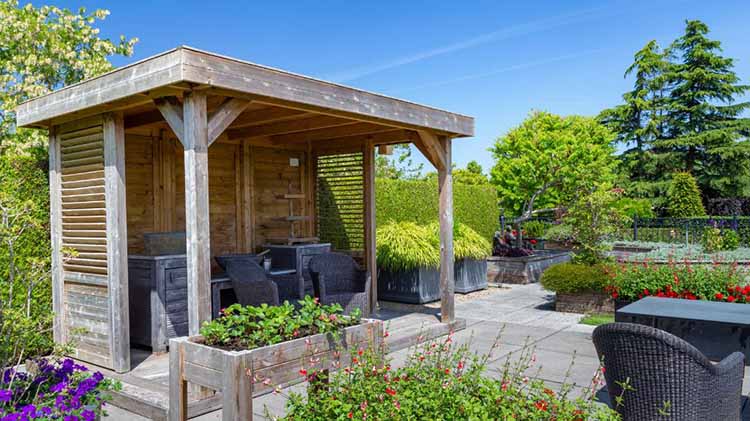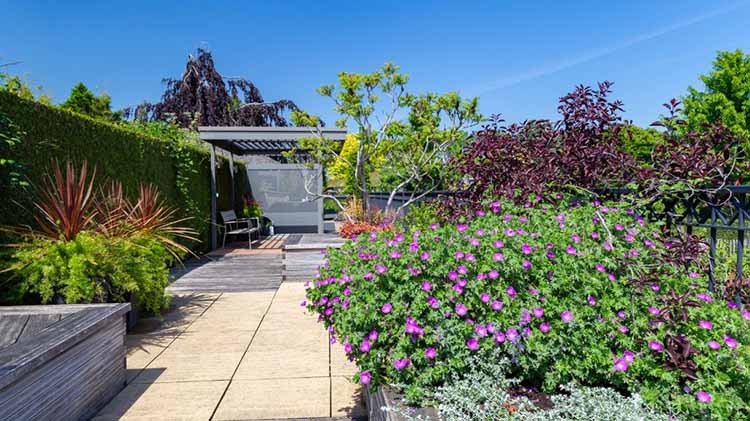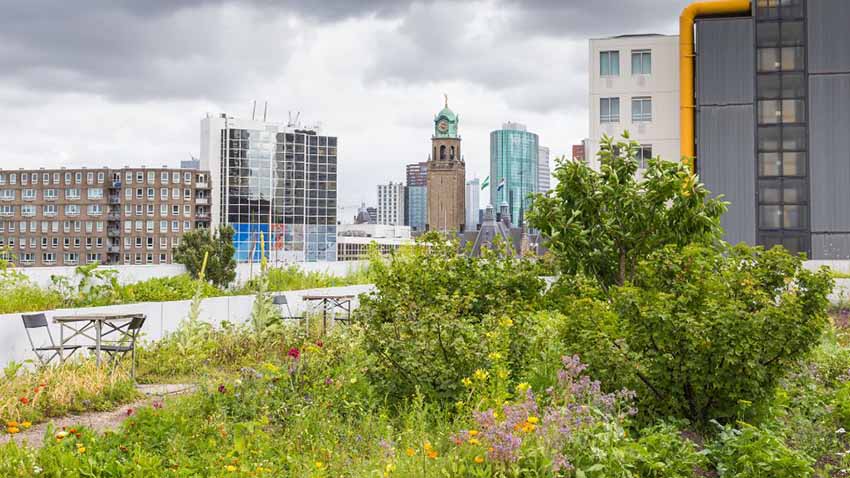Rooftop gardening is a sustainable and innovative way to bring greenery into urban environments. By utilizing the unused space on rooftops, individuals and communities can experience a multitude of benefits.
At the current fast phase of urbanization, greeneries are becoming more difficult to find. Besides, it is adding to global warming, which is alarmingly increasing day by day.
In this distressing moment, introducing rooftop gardening can create a meaningful positive impact. There are a lot of benefits of rooftop gardening, such as health, environment, energy efficiency, food security, and much more.
This article will explore the advantages of rooftop gardening, including improved air quality, energy conservation, and enhanced mental well-being. Whether you are a nature lover or an urban dweller searching for a greener lifestyle, rooftop gardening offers a unique solution that is both environmentally friendly and rewarding.

Health Benefits
Among all benefits, rooftop gardening has the most amount of health benefits. Gardening requires a lot of physical work. It might not be too much heavy lifting, but it still requires physical movements.
It eventually makes you do physical exercise, which keeps you fit. Therefore, you do not need to do exercise additionally.
Rooftop gardening also benefits mental health. The serene and calm environment created out of a rooftop garden can get you fresh air that promotes relaxation and relieves stress and anxiety.
When you work on a rooftop garden exposed to the bright sun, your body absorbs Vitamin D, which helps you in getting bone strength and immunity. Moreover, the working procedure also complements your cognitive functions.
Environmental Benefits
The best environmental benefit of rooftop gardening is getting pollution free fresh air. You must know that greeneries naturally absorb pollutants from the air and release oxygen, which purifies the surrounding air. In the case of rooftop gardening, the same happens.
Besides providing clear air quality, these plants on your roof can become the natural habitat for many birds and other insects, which contributes to preventing the ecosystem.
Moreover, as rooftop gardens take very limited space to grow, the pollination procedure becomes easier. The pollinators get easier access to your rooftop garden, and thus, it works for broader ecosystem health.
In the hot time of the year, this rooftop garden Benefits of Rooftop Gardening can also work as a natural coolant because of the moisture it releases. Being on the roof of the building, the garden creates a resisting layer for the sunlight and heat to fall on the surface of the roof directly, so it reduces the indoor temperature.

Energy Efficiency
Rooftop gardening helps to reduce energy waste and increase energy efficiency in various ways. In summer, they protect the indoors from getting overheated; thus, the usage of air conditioners lessens.
On the other hand, in the winter season, the rooftop garden acts as a thermal blanket, which decreases the pressure on heating tools. That’s how it opens a scope for low energy consumption and saves the cost as well.
The urban heat island effect happens when urban areas become significantly warmer than their surrounding rural regions. In this case, the rooftop garden balances the temperature with the transpiration process by absorbing sunlight and releasing moisture. Ultimately, it creates a more comfortable and energy-efficient urban environment.
Food Security and Sustainability
Rooftop gardens give the community and individuals a chance to enhance their food security in case of emergencies. By growing a portion of their food locally on rooftops, residents reduce their dependence on distant food sources. They can utilize their grown foods to provide for themselves in case of any disruptions. These can occur by factors like extreme weather events, transportation issues, or global crises such as pandemics.
Besides, it offers the advantage of direct access to fresh, organic, and formalin free produce right at home. This accessibility ensures a reliable supply of nutritious food, regardless of external factors affecting the global food distribution system.
Water Management
Rooftop gardens play a significant role in smart water management. They are essential in dealing with heavy rain, as they act like natural sponges, soaking up rainwater and reducing runoff. It lessens the burden on our drainage systems, which can help prevent flooding during storms.
These gardens also promote water conservation. They reduce the need for additional watering as they hold onto rainwater, making sure it doesn’t go to waste. This not only helps save water but is also kinder to the environment.
Imagine a rooftop garden as a shield against excess rainwater overwhelming our cities. By acting as this shield, it ensures that rainwater is used efficiently for the plants, which is a big win for both urban living and the environment.

Community and Social Benefits
Rooftop gardens offer more than just greenery; they create spaces for community and social interaction. Residents coming together to tend to the garden fosters a sense of unity and shared responsibility, making neighborhoods feel more tightly-knit.
These elevated green spaces provide ideal locations for social gatherings and interactions. They become venues for picnics events and simply a place to relax and connect. Shared experiences in these rooftop gardens strengthen the bonds within the community, promoting social cohesion.
Beyond their aesthetic appeal, rooftop gardens serve as educational spaces that raise environmental awareness and promote sustainable living. They are outdoor classrooms where residents, including children, engage in hands-on learning about agriculture, biodiversity, and environmental subjects.
Economic Benefits
They can significantly increase the value of a property, making it a more appealing prospect for potential buyers or renters. These vibrant, eco-friendly spaces become a unique selling point.
In addition to enhancing property values, rooftop gardens contribute to cost savings. They act as natural insulators, reducing heat loss in winter and lowering cooling costs in summer. For building owners, this translates to reduced utility bills and long-term savings on energy expenses.
By making buildings more energy-efficient, rooftop gardens not only make them more attractive but also help owners and residents save money.
Wrap Up
As you have come this far, I hope that you have learned the benefits of rooftop gardening very well. If you still need to start getting yourself involved in rooftop gardening, then start doing it green again.
